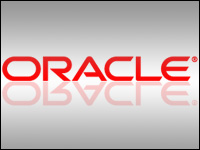
Hoping to turn up the heat on BEA’s board of directors, Oracle on Tuesday set a deadline for the company to accept its US$6.7 billion buyout offer.
In a letter to BEA’s board, Oracle said its current offer of $17 per share in cash would expire at 5 p.m. on Sunday. The BEA board has rejected its offer three times now and has declined an offer to meet to discuss the possible merger, Oracle said.
“Oracle urges the BEA board of directors to let BEA’s shareholders decide: Sign an acquisition agreement with Oracle and allow the shareholders to vote,” Oracle President Charles Phillips wrote in the letter. “Oracle has no interest in a long, drawn-out process to acquire BEA.”
Reiterating the Argument
Phillips reiterated Oracle’s arguments in favor of the deal, which would instantly make Oracle a more formidable player in the middleware space now dominated by IBM. He noted that the offer represents a 21 percent premium on the stock price before the unsolicited bid was disclosed on Oct. 12, a 31 percent premium on the average stock price over the past year and more than the company’s five-year stock price high.
Oracle has plenty of experience in acquiring companies, both those willing to be bought and those who fight it tooth and nail, such as PeopleSoft. Oracle has shown a willingness to be patient at times — the PeopleSoft acquisition closed only after a months-long drama that played out in courtrooms as well as boardrooms.
BEA shares were down in midday trading Tuesday, falling 3.7 percent to $17.90. Oracle shares, meanwhile, rose just over 1 percent to $21.42.
Waiting on a Better Offer?
BEA did not return calls seeking comment on Oracle’s deadline. The company’s initial response had been to say the offer “significantly undervalues” BEA. On Tuesday, it issued a statement reiterating that stance.
“BEA is worth significantly more than $17 [per share] to Oracle, to others and most importantly to BEA shareholders,” BEA Vice President William Klein wrote in a letter to Phillips. “We simply cannot accept an offer that seriously undervalues BEA.”
BEA is not opposed to a process that would lead to a better offer being made, Klein said.
BEA is likely holding out for a better deal, either from Oracle itself or a second suitor. Indeed, word of the Oracle offer earlier this month sparked speculation that a bidding war would materialize. However, Germany’s SAP soon came out and said it does not see the company as a buyout target, with too much overlap between the company’s customers bases.
Added Pressure
The pressure is on BEA’s board already, said Ovum Senior Analyst Laurent Lachal, because the company has long been considered a buyout target and there are relatively few likely suitors.
The true test of the deal would be to put it to shareholders — including billionaire and activist investor Carl Icahn, who owns more than 13 percent of the company.
“BEA has not performed that badly over the past couple of years and it has drawn up a road map for the future, but shareholders may be open to an offer,” Lachal told CRM Buyer.
As with the PeopleSoft buy, a sticking point with BEA could be whether Oracle will phase out the products of its acquisition in favor of its own technology. Oracle has said it will not eliminate BEA offerings and can point to its track record with PeopleSoft.
“That was a very contentious takeover that many customers oppose and Oracle has managed to hold onto and, even in some, cases enhance the user base for PeopleSoft products,” Lachal added.
Remaking the Industry
Oracle has turned in several strong quarters recently on the strength of its software licensing sales, but may be most attracted to the substantial maintenance fees BEA customers pay the company.
If it’s a true drop-dead date, the deadline may be a benefit because, as with the PeopleSoft scenario, the offer itself may have an affect on BEA’s business if the uncertainty lingers, Gartner analyst Gene Phifer told CRM Buyer.
“The offer might create obstacles for BEA by generating uncertainty in clients and prospective customers,” Phifer said. There is also a similar risk for Oracle, however, which may be likely to replace some of its own products with BEA’s.
The result may be short-term opportunities for IBM, Red Hat and other middleware vendors. “The offer may also drive further consolidation,” he added. “Second-tier players will try to gain critical mass in order to compete with the larger rivals.”


















































